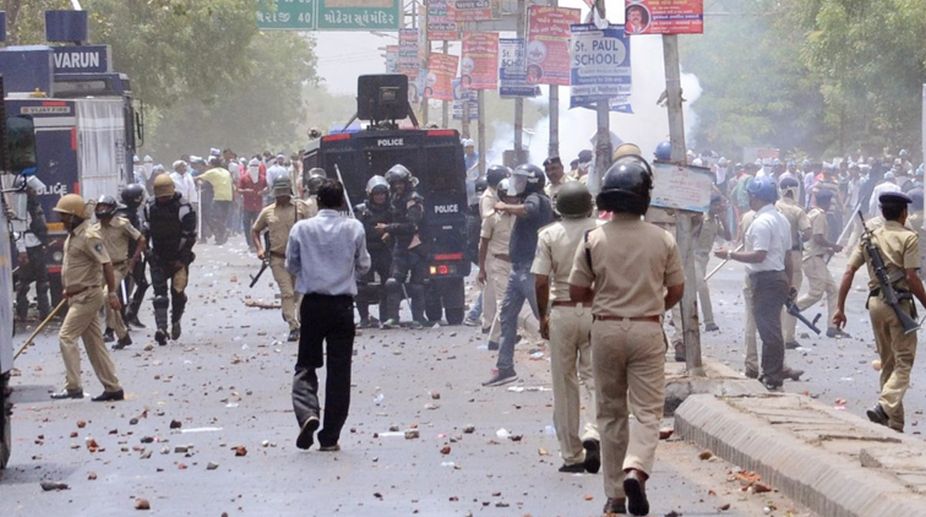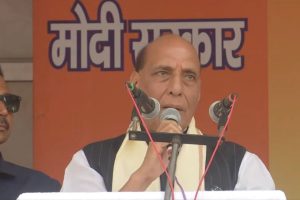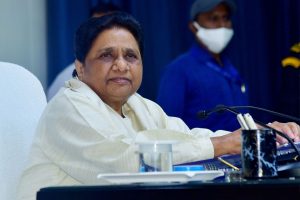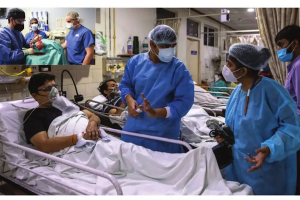Social dignity and political empowerment of the lower castes have figured prominently in the agenda of caste-based identity politics in India while economic issues such as redistribution and livelihood have not been given adequate political attention. The dominant tendency is to regard socio-cultural recognition as the cardinal aspect of social justice. Economic welfare is regarded as a secondary derivative of political and symbolic gains.
The underlying presumption is that achievement of political power will ultimately bring about economic uplift of the lower castes. This had once led Kanshi Ram and Mayawati to emphasise the importance of political power. For them, as the state is controlled by the upper castes, Dalits can only make progress if they get hold of state power and then utilize it to bring about equitable distribution of wealth and income.
However, political empowerment of the lower castes has not resulted in their proportionate economic advancement. Caste-based political parties have done little to provide economic redress to the lower and backward castes. The Mayawati government in Uttar Pradesh only undertook symbolic initiatives like organizing Periyar Mela and the construction of Ambedkar parks and statues. No economic programmes such as land reforms were initiated and there was little public intervention in education and health for the benefit of the lower castes during the rule of both Bahujan Samaj Party (BSP) and Samajwadi Party (SP).
In Bihar, the Rashtriya Janata Dal (RJD) secured dignity and self-respect for the backward castes but it miserably failed to bring about any significant amelioration in their economic condition. Even the demand for OBC (Other Backward Castes) reservation in education and government jobs was made by the organisations of the backward castes and parties not with the objective to achieve material well-being, but to achieve social respect and dignity. In accordance with this goal, the Mandal Commission defined backwardness by giving disproportionately greater importance to social factors downplaying the economic criteria. Thus, the idea of social justice remained largely disassociated from the goal of economic development.
It is in this context that the recent caste-based mobilization in Gujarat is extremely significant. It seems to have finally brought livelihood issues into the agenda of caste politics. The Dalit movement led by Jignesh Mevani seems to have amplified the scope of Dalit politics ~ from one aiming at dignity, respect and identity, to one also focusing on material issues, such as land ownership. Mevani is demanding allotment of five acres of land to every landless Dalit household. His slogan is “land to the tiller, not to the tycoon.’ He is of the opinion that, since in rural India landholding is a major determinant of a person’s status it is necessary to reduce inequality in land distribution patterns for the uplift of the Dalits. He has categorically stated that the time is ripe to move away from Asmita (dignity) to Astitva (livelihood). On the other hand, the OBC agitation led by Alpesh Thakur has also raised concrete economic demands. The main demands include a Rs 5,000-crore yearly package for the welfare of the OBCs, farm loan waiver and better employment opportunities for local residents in industries.
It is also interesting to note that the Patidar agitation led by Hardik Patel is demanding reservation on economic grounds, thus deviating from the Mandal discourse on the issue. The Patidars feel that economically they are increasingly lagging behind other social groups since their traditional sources of income have failed to yield adequate returns.
According to the Patidar Anamat Andolan Samiti (PAAS), the community is mainly dependent on seasonal ccupations and therefore, needs reservations to tackle economic uncertainties. Moreover, they are also opposed to the caste-based reservation and have spoken in favour of reservation based on economic criteria rather than on caste.
Thus, the recent caste mobilization in Gujarat has shown the preliminary tendency to go beyond identities and symbolism and accommodate concrete economic demands in its agenda. It also generated a critique of the Gujarat model of economic development. The ruling government has been criticised for handing over land to corporate houses at a nominal rate but not providing land to the Dalits and tribals. Thus, economic demands are being voiced through the articulation of caste identity.
Does the raising of such demands indicate the beginning of a new form of identity politics which is equally sensitive to dignity and political representation of the lower castes on the one hand and their economic welfare on the other? It is premature to arrive at any conclusion at this juncture. But it is imperative to see the recent events of caste mobilization in Gujarat in the context of the overall political climate.
Different caste groups have been mobilized in Gujarat with economic demands at a time when traditional caste parties such as the BSP and SP have been facing dwindling political fortunes. Their dismal performance in the 2014 Lok Sabha elections and the recent UP Assembly elections has given ammunition to the view that caste politics is rapidly losing its relevance. In this background, recent political events in Gujarat somehow demonstrate that caste politics can still remain relevant if it can reinvent itself by addressing economic concerns of the lower strata along with their desire for dignity.
(The writer is Assistant Professor, Department of Political Science, Bankura University, West Bengal)











